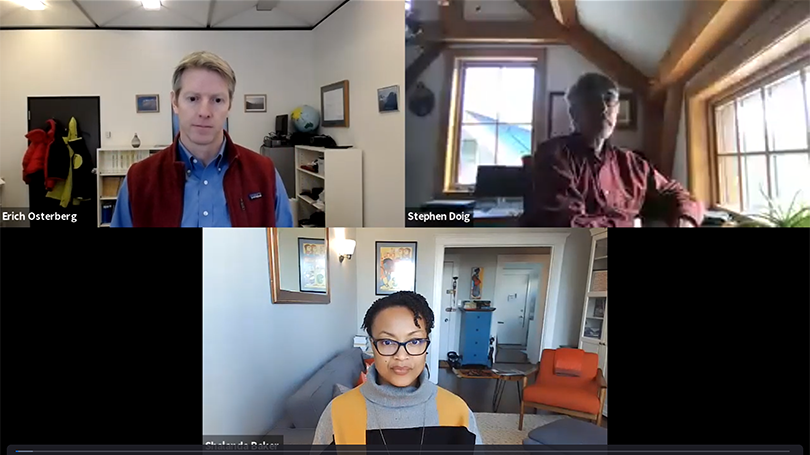
- About
- Education
- Research
- Thought Leadership
- Engagement
- News & Events
Back to Top Nav
Back to Top Nav
Back to Top Nav
Back to Top Nav
The need for a fundamental change in our relationship with energy was the common thread between recent presentations by Dartmouth Associate Professor of Earth Sciences Erich Osterberg and Northeastern University Professor of Law, Public Policy and Urban Affairs and new Deputy Director for Energy Justice at the US Department of Energy Shalanda Baker. Osterberg, who provided an overview on the trajectory of climate change and its catastrophic impacts on human wellbeing, and Baker, who examined the ways in which structural racism and inequality are embedded in our current energy systems, see the energy transition as an opportunity to create more equitable and just systems for all members of society.
Their talk, titled "Vulnerable Systems: Climate Urgency and Energy Equity," moderated by Irving Institute Research Director Stephen Doig, was the first in the Dartmouth Energy Collaborative's winter series, which is themed: "Critical Infrastructure in a Climate-Changing World." Over the course of the term, speakers will look at the impacts of climate change on infrastructure through the lenses of equity, policy, and finance. The series will conclude with a look at infrastructure and climate issues in the Upper Valley and what steps we can take locally to move toward energy systems that can avoid the worst impacts of climate change, withstand the impacts of climate change that we are already experiencing and ensure that all people benefit.